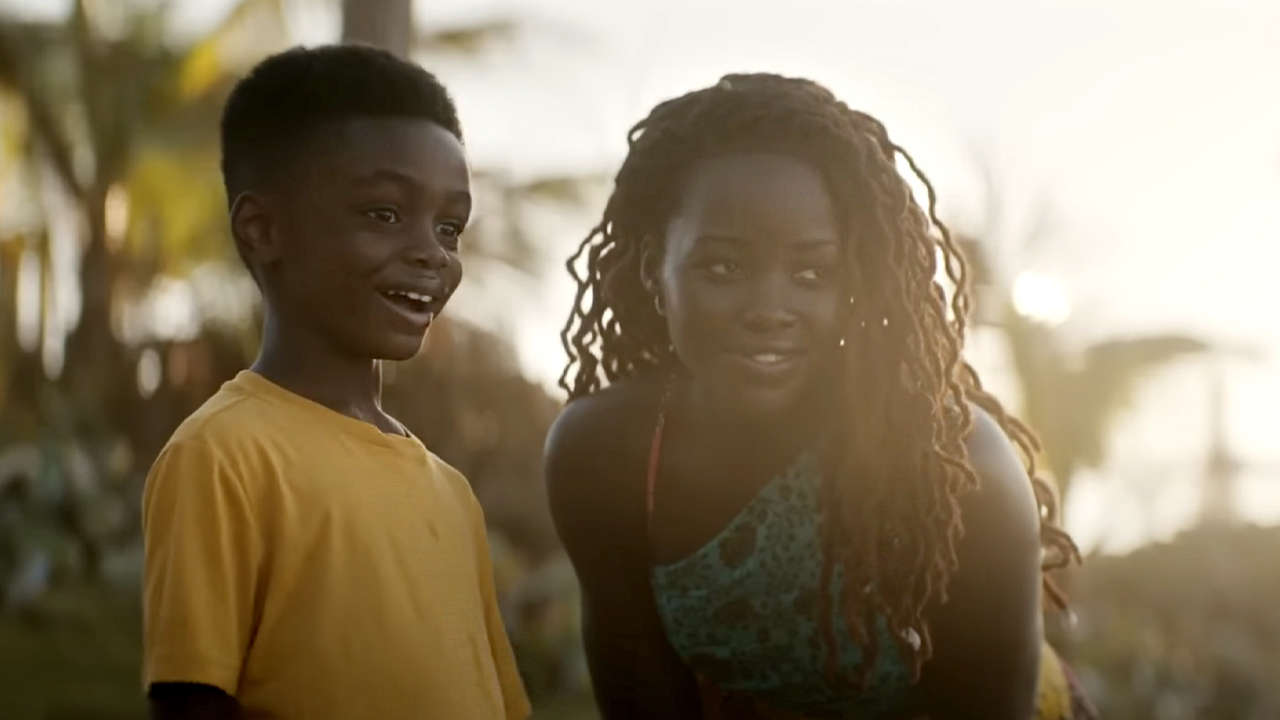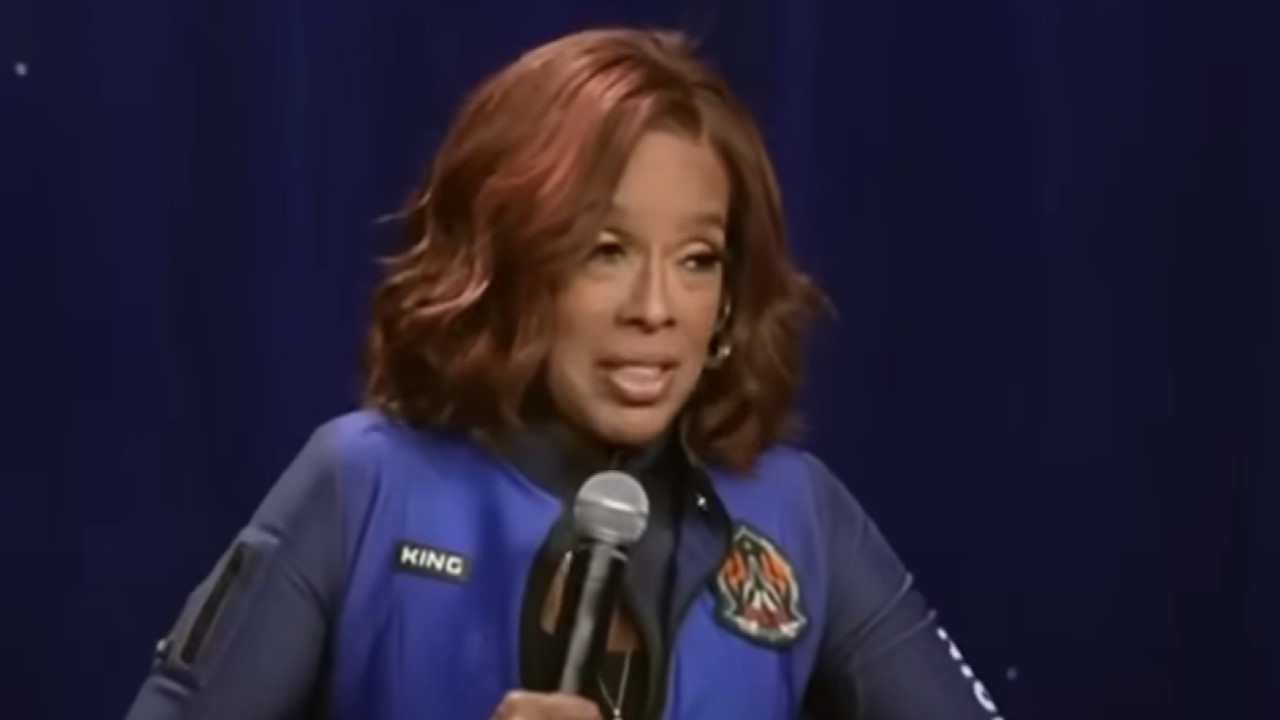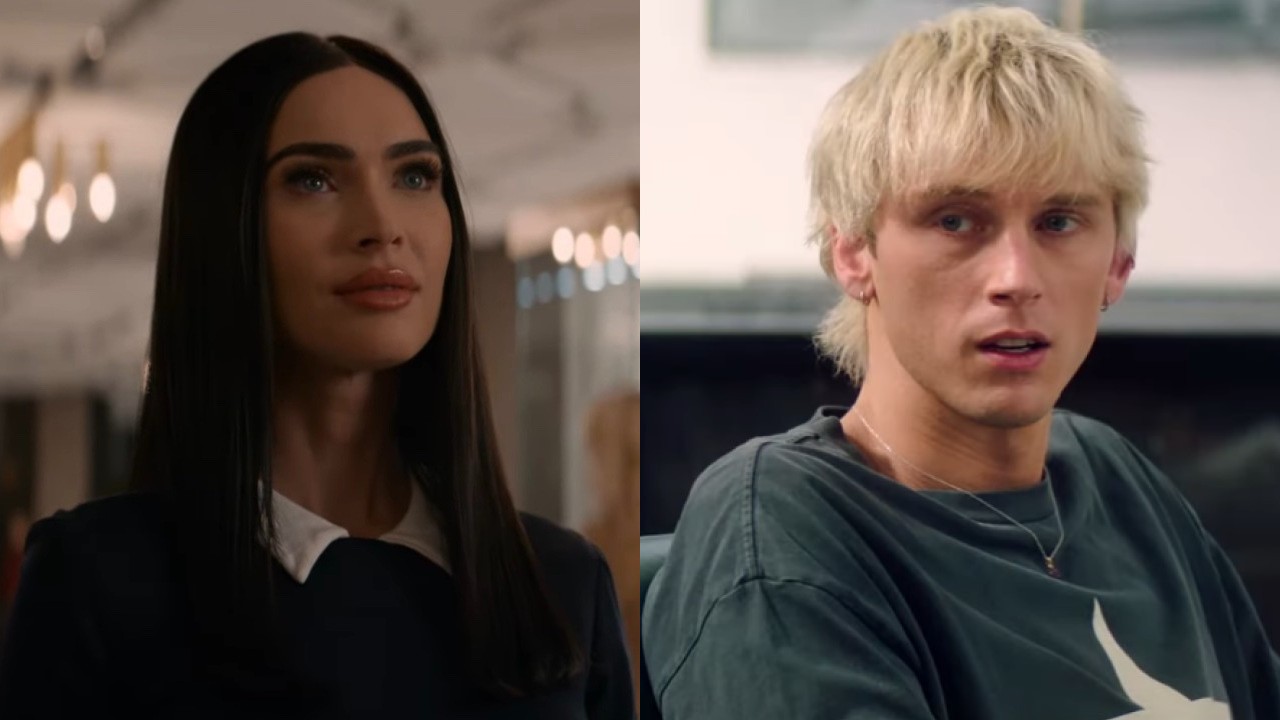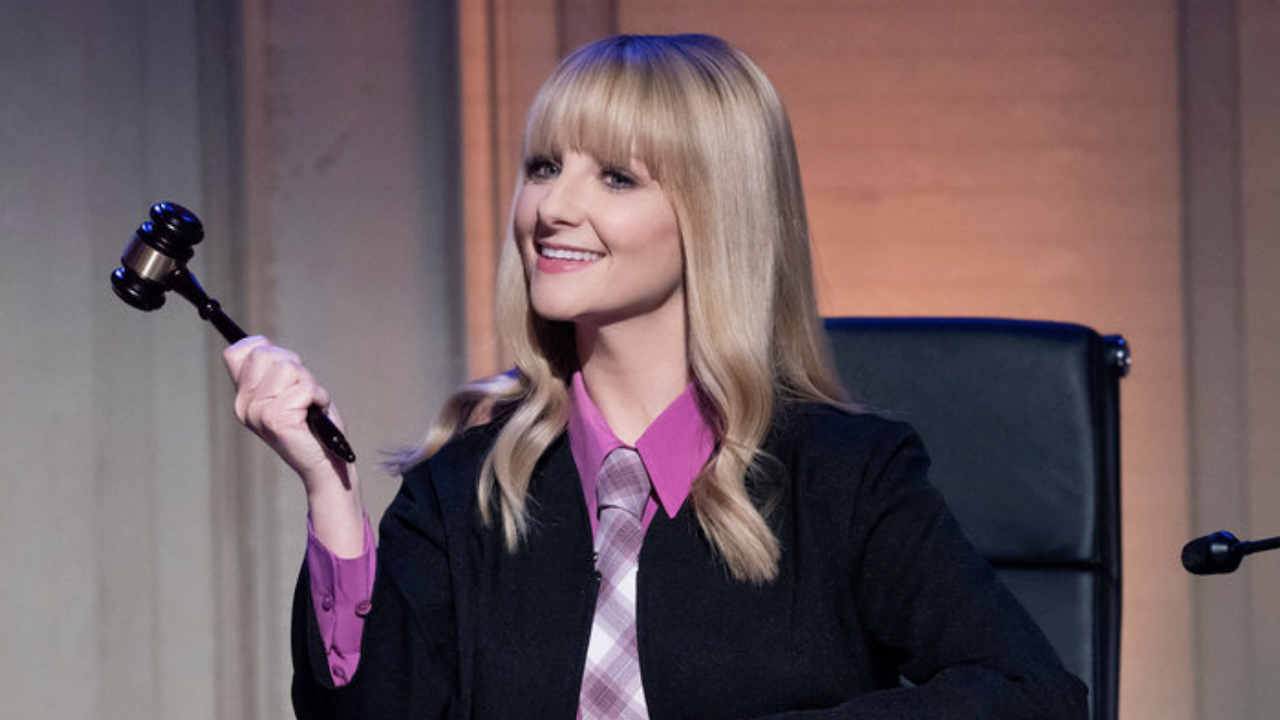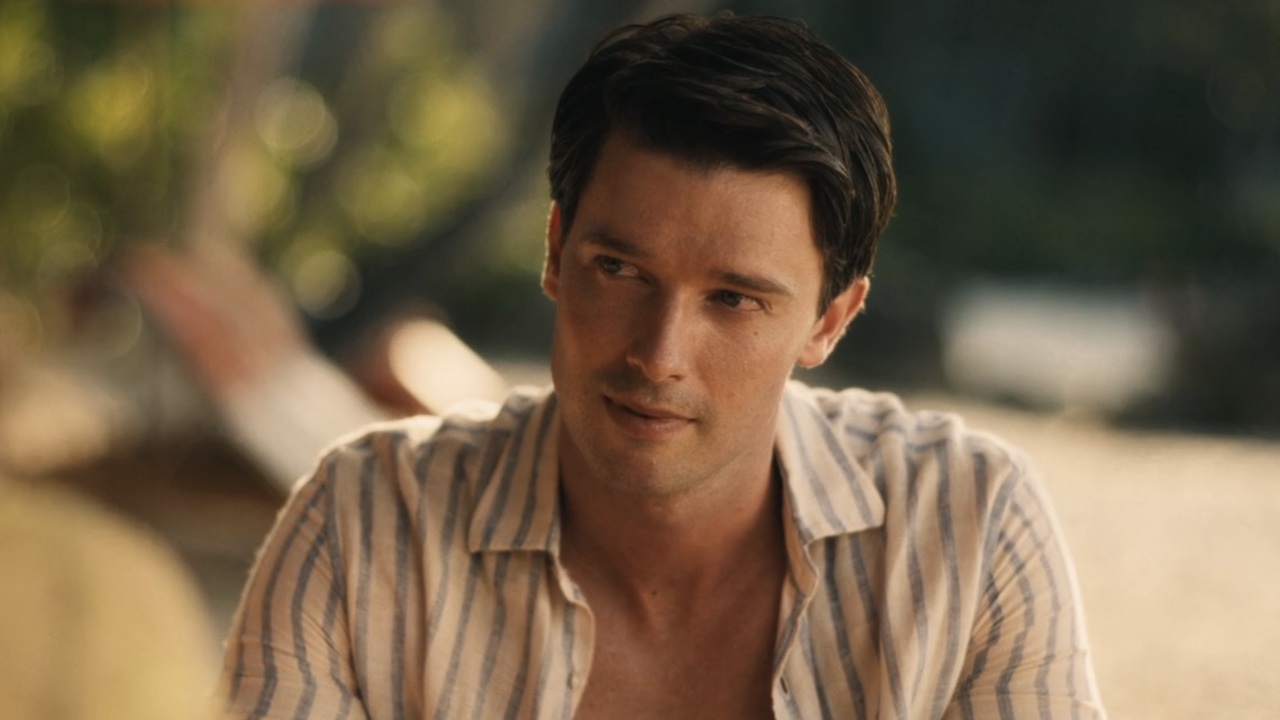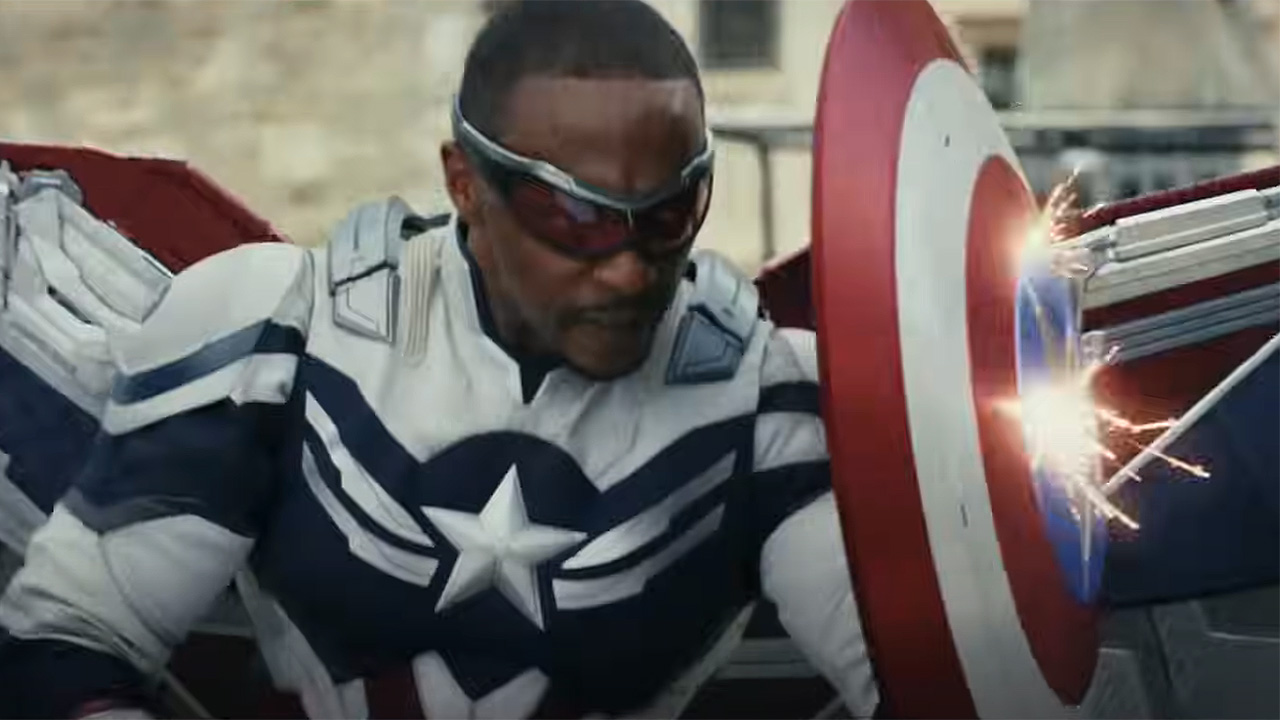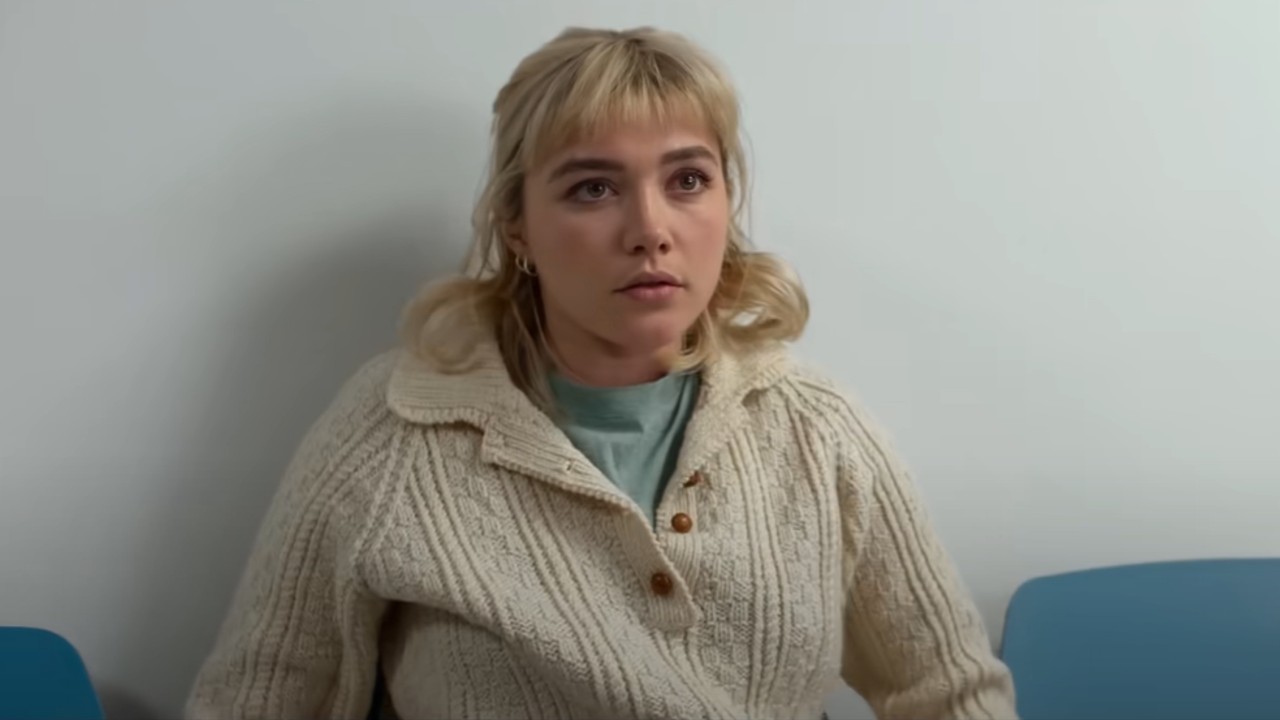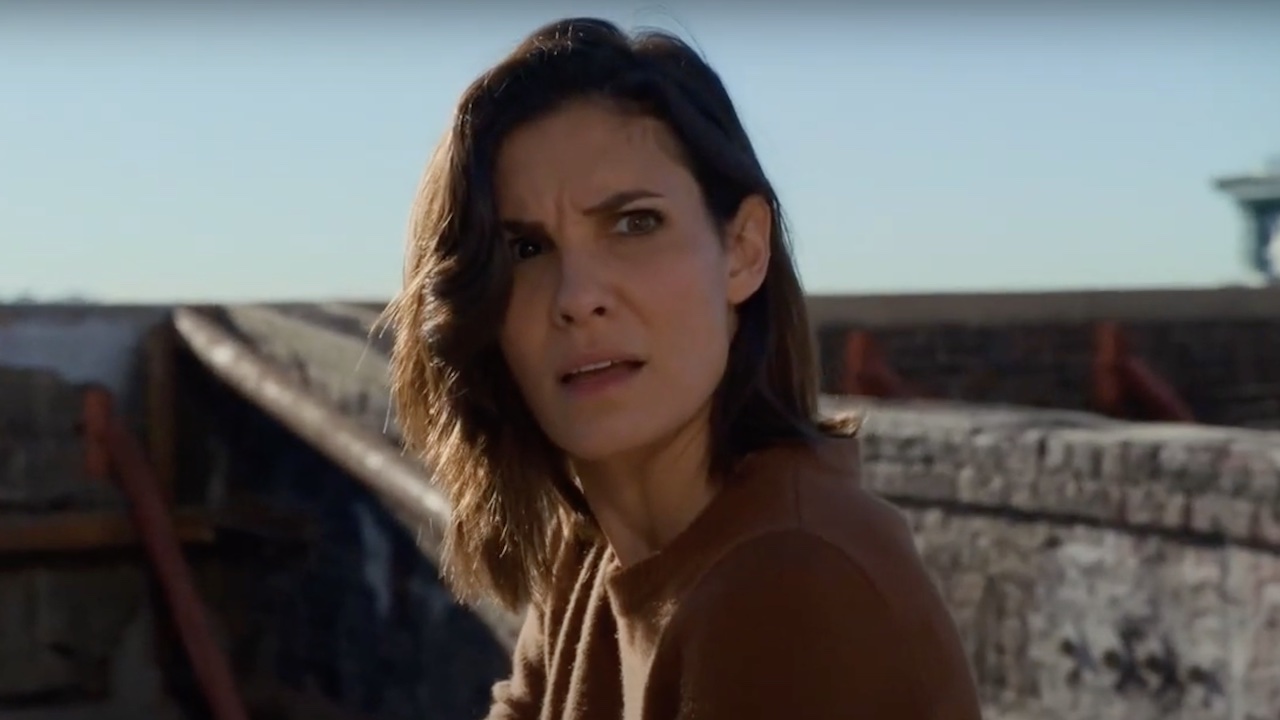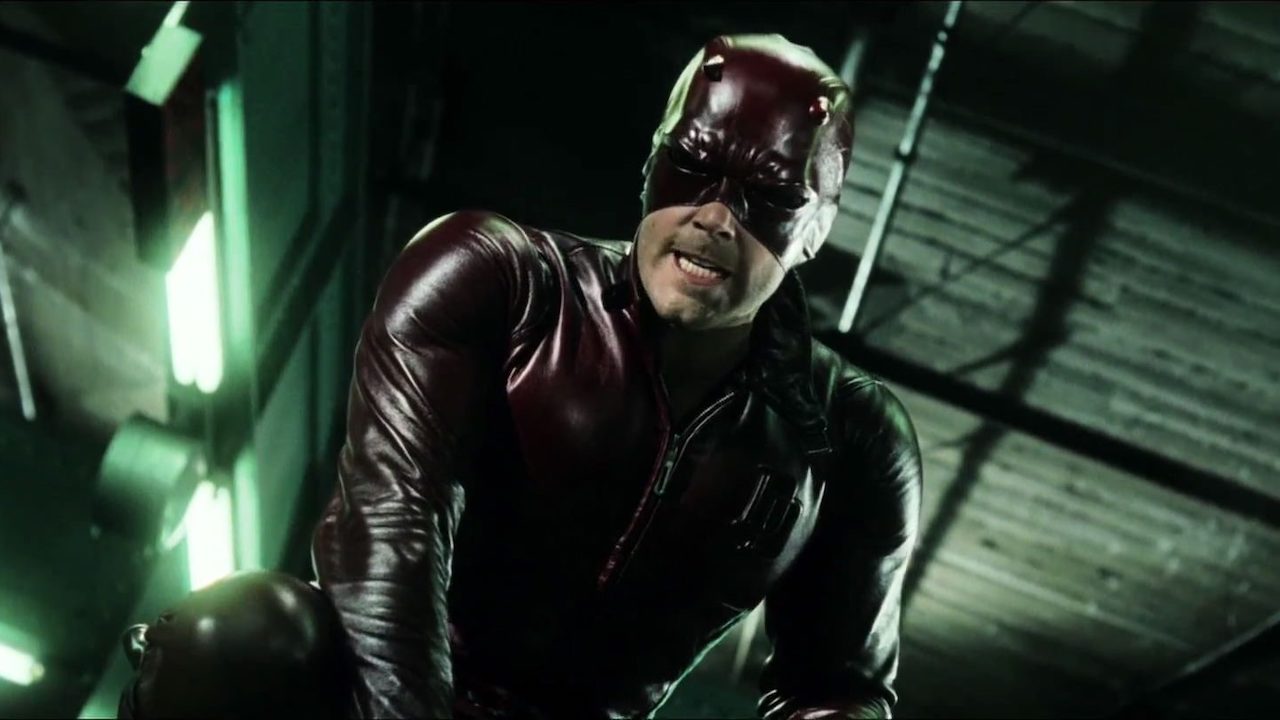Interview: Moon Director Duncan Jones
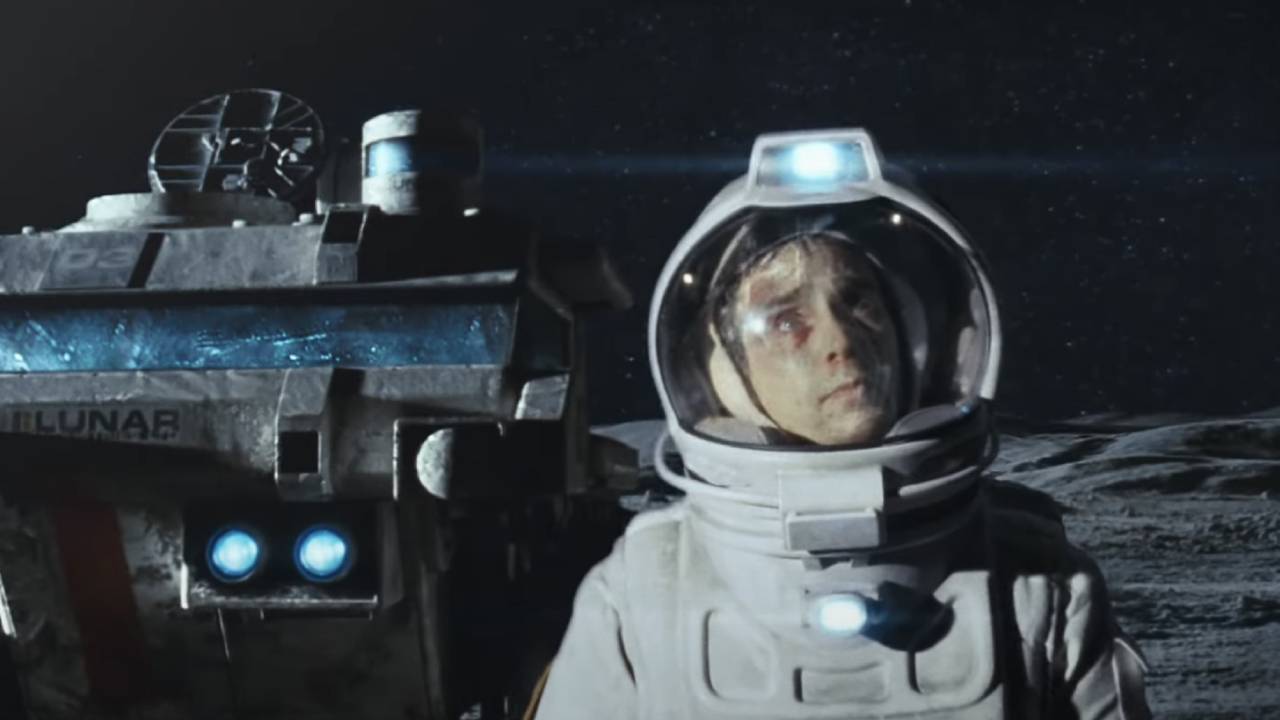
For the last few months Duncan Jones has been relentless in promoting his directorial debut Moon, doing everything from sponsoring giveaways on his Twitter account to sitting down with the likes of New York City journalists and answering endless questions about his sci-fi drama.
Luckily for me and everyone else who talked to him last week, he still doesn't seem tired of explaining why, for his first movie ever, he made a movie set on the moon. I talked to him in a roundtable interview and later one-on-one, and what you see below is a combination of the two interviews. We talked to him about how he came up with the story for Moon, why he simply he had to work with Sam Rockwell, and how you create a convincing lunar landscape on a $5 million budget. Oh, and I asked him about Twitter. Obviously.
Look for the spoiler warning near the end, since that's where we get into some pretty specific details about Moon. The movie comes out this Friday in New York and L.A., and will be expanding all over the place from there.
I wanted to ask you about Twitter. That works for you, right?
I like it. Originally getting involved with Twitter, I didn't know that much about it to begin with.
How long have you been doing it?
Two or three months. I started doing it, very Machiavellian, I thought it was important to start letting people know about the film. i wanted to do anything I could . You start doing it, you start talking to the same people more and more. We have a lot of fun on Twitter. I don't know them in their entirety as real people, but I get a real good sense of a lot of personalities out there. There are people that I like, and people that I like talking to. I do think there is a certain reality to the relationship. It's not the same as meeting in person, but that doesn't mean that it's not a relationship. We have a little community.
CINEMABLEND NEWSLETTER
Your Daily Blend of Entertainment News
How did you come up with the idea for this?
I came up with it because I wanted to work with Sam Rockwell. I met up with him three years ago. We talked about another project, which was too ambitious for a first feature film. We just couldn't convince each other, but it was good, because it wasn't the right film to do as a first film anyway. I was a huge fan of his, and thought he was an amazing actor. Meeting with him in person, realizing what an incredibly cool guy he was as a human being, I knew he was the person I wanted to work with on my first film. There was this period of science fiction films from the late 70s and 80s, films like Outlander and Silent Running, and all the ones that we ended up paying homage to in Moon. We wanted to make a film that felt like it fit in that canon of films. So Moon was something that I immediately started thinking about after that meeting.
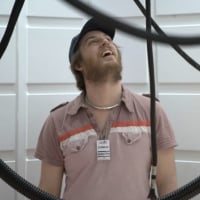
What were some of the qualities about Sam that you just had to work with?
From seeing him in films like Charlie's Angels through to seeing him in Lawn Dogs, Green Mile, Confessions of a Dangerous Mind-- the guy just oozes charisma. He's so interesting, and he's quirky, but even if he's quirky, he's not a caricature. You can feel and see the human being behind it. That's what I love about Sam Rockwell. There's not a lot of guys that you could put in Moon. You have to watch him an entire film. You can't afford to get bored of him, you can't afford to get annoyed by him. And I think that's what Sam Rockwell does. I think that's why I love him so much. I think the improvisational nature of the way he approaches acting helps with that.
The fascination with the cosmos really seems to run in the family. [Jones' father is David Bowie] Did your father's work inspire you at all?
It really didn't. I know it's difficult to believe. It didn't even occur to me until after we finished the film. My parents divorced when I was very young. Fairly unusually, I was given into the custody of my dad, so I grew up with my dad. So a lot of the things that he was listening to, and the films he was watching, influenced me. We have a very big shared pool of influences. The whole idea of alienation and isolation, which obviously he investigated in his early-mid 20s, I went through in my own way. I was at graduate school at Vanderbilt in Nashville, Tennessee, and spent three-years feeling like I was on the far side of the moon. It's no coincidence that Sam's three-year contract is the same as my three years of graduate school. I went through my own experiences that informed my own feelings about alienation and isolation.
What were your influences in designing the costumes?
You have to have a spacesuit, and that's so expensive, and so hard to do. We were looking at different designs for spacesuits from other science fiction films. Ridley Scott's Alien had a really great suit towards the end of the first film, with Sigourney Weaver. That suit was kind of a starting point for us, because it's so simple. The texture of the suit has all of these ribbed shapes on it, and we had this kind of ribbed look from the inside of the base, this padded cell look. so there were all of these looks that we tried to incorporate. We had a costume designer named Jane Petrie. I believe she worked on 28 Weeks Later. Basically all of the heads of department that we got were well known in the industry for doing amazing things for no money. That's how we chose the people who got involved.
It feels safe to assume that Kevin Spacey was never on the set. Did you end up feeling like an actor yourself, to play off of Sam?
I'd love to know what Sam feels about that, but I certainly did. There was some method directing going on there. The whole period of writing the film and making the film, I had this horrible, heartbreaking long distance relationship I was going through. I actually let it keep going, because I wanted to feel that way the whole time I was making the film. That really helped me while I was talking to Sam, because Sam was also going through a long-distance relationship with his girlfriend. You know, I kind of tried to look a little bit like him. I had the same bushy beard when he had the bushy beard. I thought it was useful. You're right, he had no other actors to talk to or to deal with, or to just relax with. So he was very isolated. The set itself was a 360-degree set with a roof on it, so when we went into the set and they closed the doors, we were on location. There wasn't a third wall. He couldn't see past the camera and see the studio.
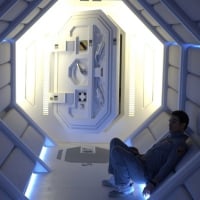
Were you ever worried about giving Sam Rockwell a personality disorder?
We did try to make him uncomfortable. The character is called Sam. That was kind of the initial thing in the script, when he was reading the script, to be faced with his own name. I kind of like the idea of Sam being maybe a little bit uncomfortable, having to face himself. That's part of the point. Beyond the science fiction setting the idea of anyone of us here having to face ourself, and deal with ourselves, and realize what it's like for everyone else to have to deal with this person.
How did you choose Kevin Spacey to be Gerty?
The thing was, if you're going to put a robot with a voice in a science fiction film, people will think HAL. We do pay homage to a lot of science fiction film, and that is kind of our 2001 homage. But there's no point recreating the same character and making them exactly the same. Otherwise you really are just ripping them off. What I wanted to do is for science fiction people, allow their expectations to be set up at the beginning of the film, let them make those connections with HAL. He's got the same kind of honeyed voice but slightly malevolent tone that HAL has. The thing is it's not creepy, it's actually just a voice. Over film history we've learned to associate that voice with a moral ambiguity. HAL's got it, and Kevin Spacey's got it. I wanted that from Kevin Spacey, because I wanted the audience to get the wrong idea up front, and assume that Gerty was going to be just another evil machine. That was kind of why Kevin Spacey was perfect.
Can you talk about the filming of the moon surface itself?
We went incredibly traditional. We used model miniatures. We built a 30 foot by 40 foot lunar landscape in a soundstage, next door to where our base was. We had these beautiful little models, sort of Tonka truck style, that were being pulled with fishing line over the landscape. We had an amazing cinematographer who came in just for the model miniatures shoot, a guy called Peter Talbot. He came up with an equation that would give us exactly the right frames per second that we needed to make the models seem like they were life-sized, but also take into consideration lunar gravity. We had kind of a two-layer process. We shot as much as we could in cameras, and we added all these effects and beautification processes on top of it to end up with this hybrid look that we wound up with.
We've all seen old science fiction movies where people worked with models, and it looked kind of hokey. How did you work with them within your own vision of space?
I did have the opportunity to create this hybrid look of using live-action elements and then adding computer generated effects and production techniques on top -- [it's] something I've had the chance to do in commercials a couple of times. So I really had had the opportunity to hone it a little bit, so that put me in a good starting position for doing the special effects on Moon. I had some fantastic people I was working with. The four of us worked very closely together, for the model miniatures in particular. There's certain bits of wisdom that were were able to use and be aware of, from guys like Bill Pearson, who worked on the original Alien, that maybe people who do model miniatures are not aware of. It's so important to get the frames per second right. The placement of the camera in how you shoot model miniatures is also really important. Model miniatures can look really bad really easily, and it does depend on this expertise that you only get if you do it over a period of years. There was really a high period of practical effects that kind of disappeared when CG took over. They had reached the point where practical effects could look fantastic, but it was only after years of experience. It's not surprising that some of the old Star Trek stuff looks so ropy. It took time to develop the techniques, and to have the expertise to get it right. It wasn't until the late 70s early 80s when they actually had really kind of mastered it. Then everyone went to CG, and all the craftsmen who had that expertise kind of disappeared. Because of the uniqueness of Moon, and the fact that we were able to get these old-time experts, we were able to use their experience to get it right again.
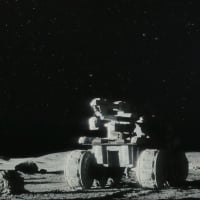
Do you think the pendulum is swinging back toward using models?
I hope so. I'm not convinced. I certainly think that independent films like mine certainly give a new lease of life for some of these experts. The problem is there's not actually that many of them left. A lot of the techniques are going to have to be re-learned. The best thing we can do is find these old guys and talk to them and get as much information as we can out while they're still around. It's going to save us years of trying to rediscover it all.
Do you have a dogma either way? Do you support one or the other?
No, not at all. My look is generally quite hybrid anyway, between live-action and CG. I'm incredibly excited to see what Jim Cameron does with Avatar, that's going gung-ho with the CG side of it. But I am one of those people who sees it purely as a tool. There's no point doing a special effect in a particular way, just because you want to use those particular technologies. You use it because it's the right tool for the job.
How close do you think we are to the future seen in Moon?
It is a slightly different future. I think it could still be a future. I consciously didn't put a date on it, because I wanted to leave it a little bit amorphous, and leave it in this non-time. The next film I'm hoping to do is this thing Mute, which is another science-fiction film but a city-based film, kind of a future thriller. Based in a future Berlin. And that film is supposed to take place within the same timeline as Moon. Maybe when we're making that, by force of necessity we might have to narrow the time down a little bit. It's going to have a Blade Runner feel to it.
What about Escape from the Deep?
I didn't put that press release out. Escape from the Deep is a fantastic book. It's based on a true story, incredibly well-researched. I'm hoping that the script is as good as the book, because I love the book. It is an incredible true story. It's a long way away. I'd love to do it, I hope I get to do it. But Mute is a script that its out there, that actors are reading right now. I would assume that Mute is likely to happen first.
BIG MOON SPOILERS AHEAD
A lot of people who have seen the movie have complained about the trailer, because they think it gives away a spoiler. I wanted to know what you thought of it.
Although I didn't make the trailer, I think they did a really good job. Even if it does give a little bit away, I think it at least gives people an interest in seeing what the story is. There is more to it than that. The reason I don't mind people talking about the fact that Sam plays multiple parts is that we do actually give that away at the end of the first act. It's quite early on in the film. Although it's a lovely reveal, I think for an audience that knows nothing about it they're going to get a different experience than someone who does know about it. I don't think that we've ruined the film for them.
The end of the movie is surprisingly optimistic. I was wondering why you wanted to give us that hope.
I did want it to be a slightly hopeful ending. Obviously Sam I's ending isn't quite so hopeful, but he's doing it on behalf of someone he thinks of as a brother. But Sam II has a hopeful ending. We did try doing it without the radio chatter on the end, and it felt so somber and so dark, and it just didn't feel appropriate. We really had tried to build up this film where you have these highs and lows, and I really wanted a sort of up ending. As an audience we kind of deserved that. We want Sam to do well. I thought that was appropriate.
So you see the future as having hope?
Yeah. I think Ridley Scott has been asked this about Blade Runner, why he crated this dystopian future with Blade Runner. And his answer is that he doesn't think it's dystopian. He thinks it's just the future. It's not a particularly bad place, it's not a negative place. It's busy, it's highly populated, it's very multicultural, but there's nothing wrong with it. And I agree with him. I'm not one of those people who sees Blade Runner as being dystopian. I see it as just an interesting, vibrant, busy future.
Staff Writer at CinemaBlend

